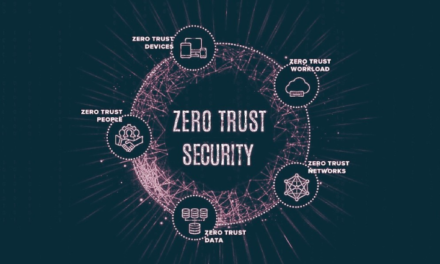Walmart has issued a recall for specific lots of its Great Value frozen shrimp due to potential radioactive contamination. The U.S. Food and Drug Administration (FDA) raised concerns after detecting elevated levels of Cesium‑137 (Cs‑137), a radioactive isotope, in a sample shipment from an overseas supplier.
Although no illnesses have been reported and the contamination levels are below intervention thresholds, both Walmart and the FDA are urging consumers to take this recall seriously and avoid consumption of the affected products. This article outlines everything you need to know about the recall, health risks, consumer action steps, and broader implications for food safety.
Details of the Recall
The recall pertains to three specific lots of Great Value brand frozen raw shrimp. These shrimp were distributed in multiple states and are now being removed from store shelves.
Recalled Product Information:
- Brand: Great Value
- Type: Frozen, peeled, deveined raw shrimp (26/30 count)
- Lot Numbers: 8005540‑1, 8005538‑1, 8005539‑1
- Best-By Date: March 15, 2027
- Manufacturer: PT. Bahari Makmur Sejati (BMS Foods), Indonesia
States Affected:
The shrimp were distributed in at least 13 U.S. states, including Alabama, Arkansas, Florida, Georgia, Kentucky, Louisiana, Missouri, Mississippi, Ohio, Oklahoma, Pennsylvania, Texas, and West Virginia.
Consumers in these areas are strongly encouraged to check their freezers for these products and follow the FDA’s guidance.
Why Is This a Concern?
The primary concern is the detection of Cesium‑137 (Cs‑137), a radioactive element that can pose serious health risks if ingested in large or sustained amounts. Cs‑137 is commonly produced during nuclear fission and can contaminate food supplies through improper industrial or environmental practices.
Although the contaminated shrimp sample only showed about 68 Bq/kg of Cs‑137—far below the FDA’s maximum allowable limit of 1,200 Bq/kg—the detection still triggered a precautionary recall. Authorities also noted that the shrimp may have been processed under unsanitary conditions, raising the possibility of other food safety issues.
Potential Health Risks
While the detected radiation level is relatively low, long-term exposure to radioactive isotopes—even at subclinical levels—can increase the risk of certain health conditions, including cancer.
Short-Term Health Concerns:
- Typically minimal at low exposure levels
- No immediate symptoms expected for those who consumed a small quantity
Long-Term Health Risks:
- DNA damage
- Increased cancer risk through bioaccumulation of radioactive materials
- Potential impact on vulnerable populations such as pregnant individuals, children, and those with compromised immune systems
According to food safety experts, while consuming a small amount of this product is unlikely to cause acute harm, continued ingestion or exposure over time could pose risks.
What Should Consumers Do?
If you have recently purchased frozen shrimp from Walmart, follow these steps:
- Check the packaging for the brand “Great Value,” lot numbers 8005540‑1, 8005538‑1, or 8005539‑1, and a best-by date of March 15, 2027.
- Do not consume the shrimp if it matches the recalled product description.
- Safely dispose of the product or return it to your nearest Walmart location for a full refund.
- Monitor your health if you believe you consumed the affected product, especially if you notice any unusual symptoms. While no symptoms are expected from minor exposure, consult your healthcare provider if you have concerns.
Walmart’s Response
Walmart issued a statement affirming its commitment to customer safety. The company emphasized that it took immediate steps to:
- Remove affected products from store shelves
- Notify distribution channels of the recall
- Cooperate fully with FDA recommendations and guidelines
The company is also offering refunds for customers who purchased the recalled shrimp.
FDA Action and Import Ban
In response to this incident, the FDA has added the Indonesian supplier PT. Bahari Makmur Sejati (BMS Foods) to its import alert list. This action means that future shipments from the company will be automatically detained at the U.S. border until they can be proven safe.
This proactive measure is intended to prevent future incidents and ensure that only products meeting U.S. food safety standards reach American consumers.
How Does Radiation Get into Seafood?
Radioactive contamination in seafood can result from a variety of environmental and industrial sources:
- Discharge from nuclear facilities
- Improper waste management near coastal waters
- Contaminated processing equipment or environments
While rare, these instances remind consumers and regulators of the importance of global food safety monitoring, particularly when products are imported from countries with varying regulatory standards.
What This Means for Consumers
This recall has highlighted some broader issues surrounding food safety, including:
1. The Risks of Globalized Supply Chains
Food products today often travel thousands of miles before reaching your dinner table. That means multiple points of failure exist along the supply chain, particularly in countries with inconsistent food safety regulations.
2. The Importance of Regular Testing
The detection of Cs‑137 was only possible due to routine FDA inspections. These efforts ensure that even low-probability risks are identified before they can cause widespread harm.
3. Consumer Vigilance
Incidents like this show the importance of staying informed about food recalls. Consumers are encouraged to subscribe to FDA recall alerts or use apps that notify them when a product they’ve purchased has been recalled.
Final Thoughts
While the recall of Walmart’s Great Value shrimp due to potential radioactive contamination is understandably concerning, it also reflects a functioning food safety system that caught a problem before it became a crisis.
To summarize:
- Do not consume shrimp from the affected lot numbers.
- Check your freezer if you’ve purchased frozen shrimp recently from Walmart.
- Return or discard any recalled products.
- Contact your doctor if you have health concerns.
Food safety is a shared responsibility between suppliers, retailers, regulatory agencies, and consumers. This incident serves as a reminder to remain aware and informed.
Resources and Contact Information
- FDA Recall Notices: www.fda.gov/safety/recalls
- Walmart Customer Service: 1-800-WALMART
- FDA Consumer Hotline: 1-888-SAFEFOOD
Staying vigilant today helps prevent risk tomorrow.











